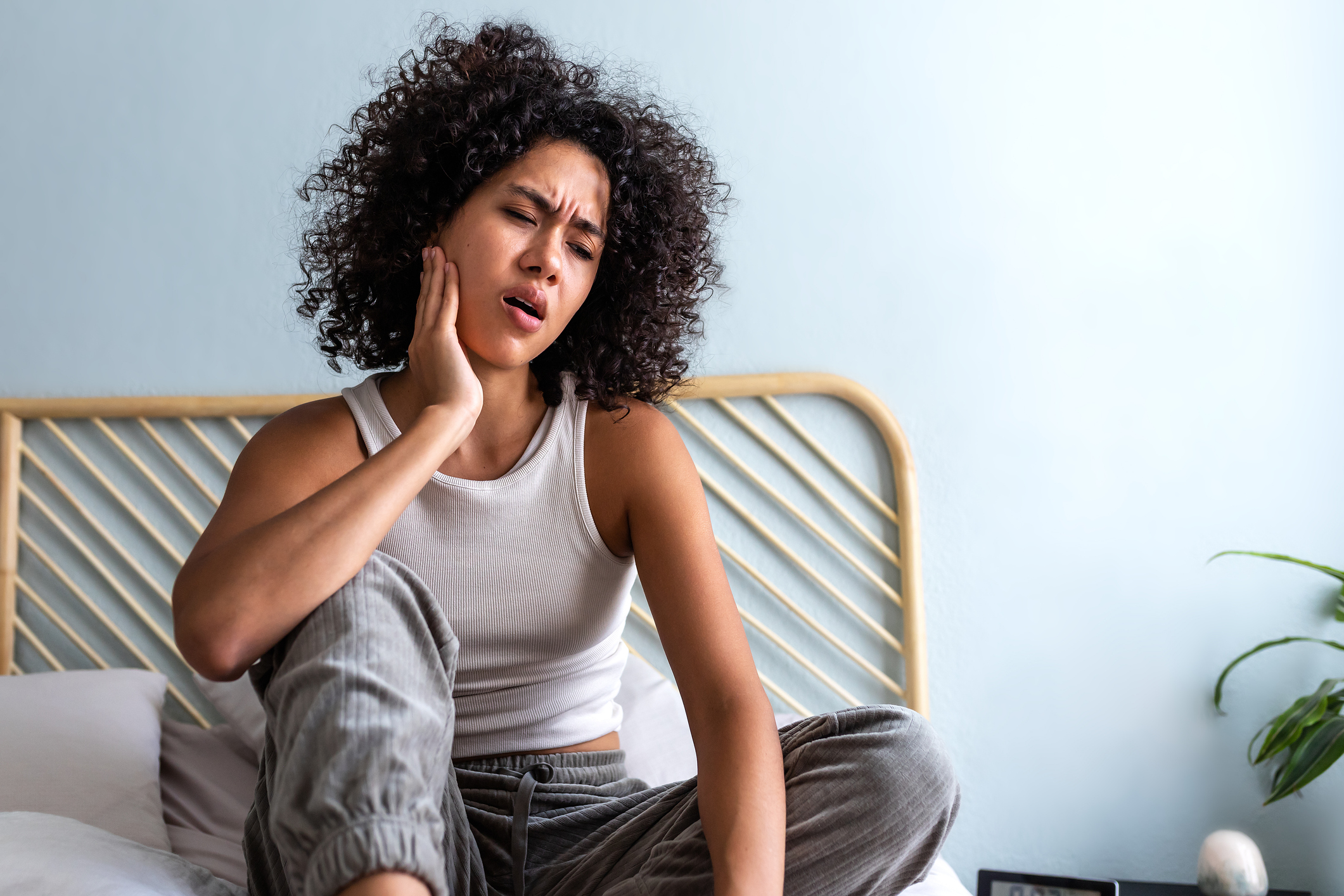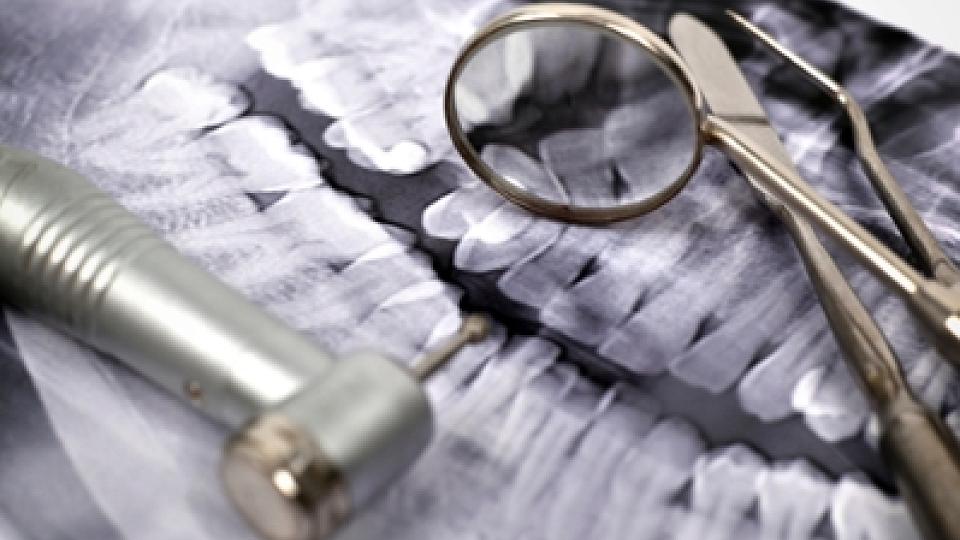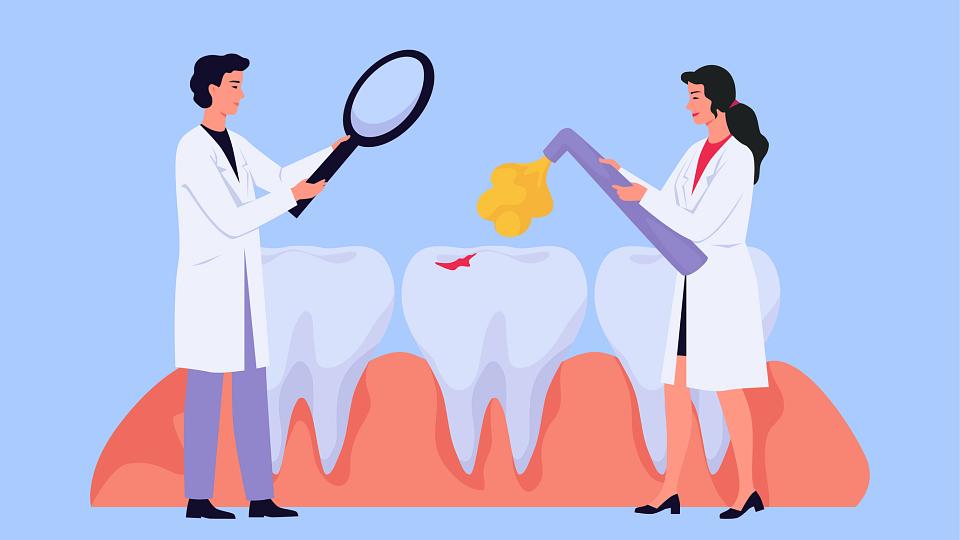
This content was originally produced for audio. Certain elements such as tone, sound effects, and music, may not fully capture the intended experience in textual representation. Therefore, the following transcription has been modified for clarity. We recognize not everyone can access the audio podcast. However, for those who can, we encourage subscribing and listening to the original content for a more engaging and immersive experience.
All thoughts and opinions expressed by hosts and guests are their own and do not necessarily reflect the views held by the institutions with which they are affiliated.
Teeth Clenching and Grinding Patterns
Interviewer: How bad are teeth clenching and grinding? Going to find out next on The Scope.
So here's the thing: many people who are clenching their teeth don't even realize that they're doing it. It can happen while you're awake or asleep, and what many people don't know is how bad it can actually be for your teeth.
We're going to find out how bad and what you can do about it right now with Dr. David Okano. He's a periodontist with 30 years of experience and is currently an assistant professor at the University of Utah School of Dentistry. Is clenching and grinding essentially the same as far as a dentist is concerned?
Dr. Okano: Essentially, they're the same. Clenching would be you're just gritting your teeth together. Grinding would be that you'd probably be moving your teeth back and forth, front and center, and the net effects are that it wears down the surfaces of your teeth and could also lead to future problems with tooth fractures or even bone loss around the roots of your teeth.
Why do People Grind and Clench Their Teeth?
Interviewer: So, grinding is something that people tend to do in their sleep. Do they tend to do that awake? Because I know clenching can be either, it could be at night or during the day while you're awake.
Dr. Okano: That's correct. Either habit could be done whether you're awake or asleep. Typically, the bigger concerns with grinding of your teeth occur when you're asleep at night because that's when the forces are much greater and for prolonged periods of time.
Dr. Okano: There are a number of reasons. One of the big reasons would be it's a stress outlet. If you're under a lot of stress, you tend to grind or clench your teeth. Not unusual for us to see college students at finals time grinding and clenching their teeth a little bit more as they're preparing for final exams. Or people with life stresses and work stresses are triggers for grinding and clenching habits.
Interviewer: I'm going to admit I am a teeth clencher and didn't realize it till my dentist said, "Are you clenching your jaw a lot?" And then I thought back and I thought, "Yeah, while I'm awake, I do." So I've stopped that behavior. Am I good?
Dr. Okano: That's great that your dentist recognized it. Quite often, you may be doing damage to your teeth through your clenching habit without being aware of it. Your dentist often finds wear patterns in the teeth that suggest the wearing down of your teeth. It is a situation where you may not be in control of stopping the habit, so that's why the appliances we make in the dental office can be very beneficial to reduce the damage.
Interviewer: Yeah, let's get to that in a second. So I could continue to clench and grind at night, and there's really nothing I can do about that. I could adjust my habits during the day, maybe, but at night that's tough.
Dr. Okano: That's correct.
Interviewer: And would a hypnotherapist help, maybe?
Dr. Okano: There are some who've had some success with hypnotherapy. I wouldn't rule that out as an option, but generally speaking, it is a habit that is very difficult to overcome and eliminate. We try to utilize appliances to reduce that damage.
Damage and Consequences of Teeth Clenching and Grinding
Interviewer: So the damage is damage to the surface of the teeth, which could weaken it, cause cracks, but then you also talk about bone loss, where you could actually lose teeth?
Dr. Okano: That's correct. It's like putting a post in the ground. If you push on that post little by little, it'll get looser and you'll start losing the support of the post in the ground. The same thing can happen when you're grinding your teeth. As you put pressure on the top, it will transmit into the bone support, and eventually, a loose tooth could develop from chronic granular clenching of your teeth.
Solutions to Teeth Clenching and Grinding
Interviewer: All right, and the solution, I think you alluded to a little bit earlier, is a mouth guard.
Dr. Okano: That is one solution. Certainly, it's very important for you to see your dentist to see if there are some high spots on your teeth. On occasion, the grinding is stimulated by a high spot. For example, if you receive a new filling or a new crown and all of a sudden the bite is off, your body is trying to grind your teeth into equilibrium. So on occasion, your dentist may be able to adjust the biting surface of your teeth, and that can be very beneficial and helpful.
But a lot of times it's necessary to consider a mouthguard, a piece of plastic that fits between your teeth. It won't stop the habit necessarily, but it certainly reduces the damage, and it's much easier to replace a piece of plastic than to do a full rehabilitation of your teeth from the damage that you caused from grinding.
Interviewer: So, spend that little bit of extra money, get that mouthguard. How often do they need to be replaced, generally?
Dr. Okano: That will depend on how significant you're grinding or clenching. It is not unusual to see these appliances having to be replaced on a yearly basis. Other times, individuals can have them for years. The important thing is to have it checked with your dentist to be sure that it's still a functioning appliance doing the job it is supposed to be doing.
TMJ and Teeth Clenching and Grinding
Interviewer: And the grinding or clenching, can that lead to other problems like TMJ, for example? Is that what causes that, too?
Dr. Okano: Absolutely. The grinding or clenching of your teeth can throw your TMJ, otherwise known as your jaw joints, out of equilibrium. It can lead to muscle spasms and headaches, for example, which can be a symptom of grinding your teeth, so other structures within the facial complex can certainly be affected by your grinding habit.
Interviewer: Does a mouthguard help alleviate some of that as well?
Dr. Okano: Absolutely. That's one of the real benefits of a mouth guard is to reduce the TMJ symptoms, making things much more comfortable and improving the quality of life for you.
Seeking Dental Care for Teeth Clenching and Grinding
If you're suspicious of grinding or clenching your teeth, you may have symptoms such as in the morning, you may have feeling that your mouth and muscles are tired. I hear that comment frequently: "My face just felt tired in the morning." That's probably because you've been grinding all night long and your muscles are fatigued. So it's important for you to see your dentist, and they can make the determination if there is some damage that's starting to occur and what the appropriate treatment for your condition may be.
updated: July 8, 2025
originally published: September 21, 2016
5 Health Concerns Associated with Gum Disease You May Not Know About
Daniel Thunell, DMD, board-certified periodontist, explains how inflammation in your mouth could impact your long-term wellness—and what you can do to prevent it.
How to Access Affordable Dental Care
Dental health is crucial, but not always affordable for all budgets. James Bekker, DMD, from University of Utah School of Dentistry, offers an insider's guide to finding and utilizing low-cost dental services.
Understanding Tooth Sensitivity and How to Manage It
Feeling discomfort when eating hot or cold foods? Tooth sensitivity can be more than just a minor annoyance—it could signal a deeper issue. David Okano, MD, breaks down what different...







